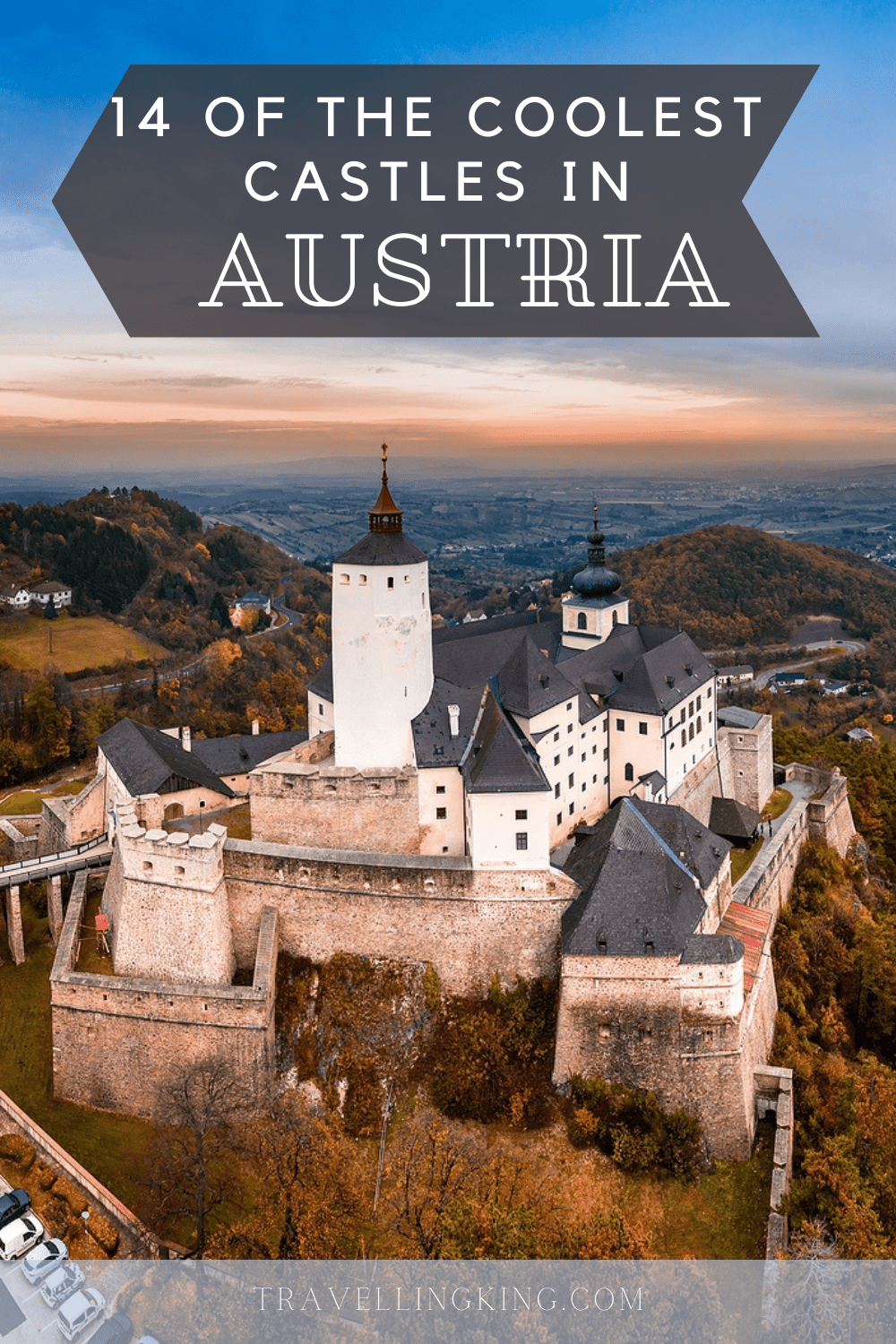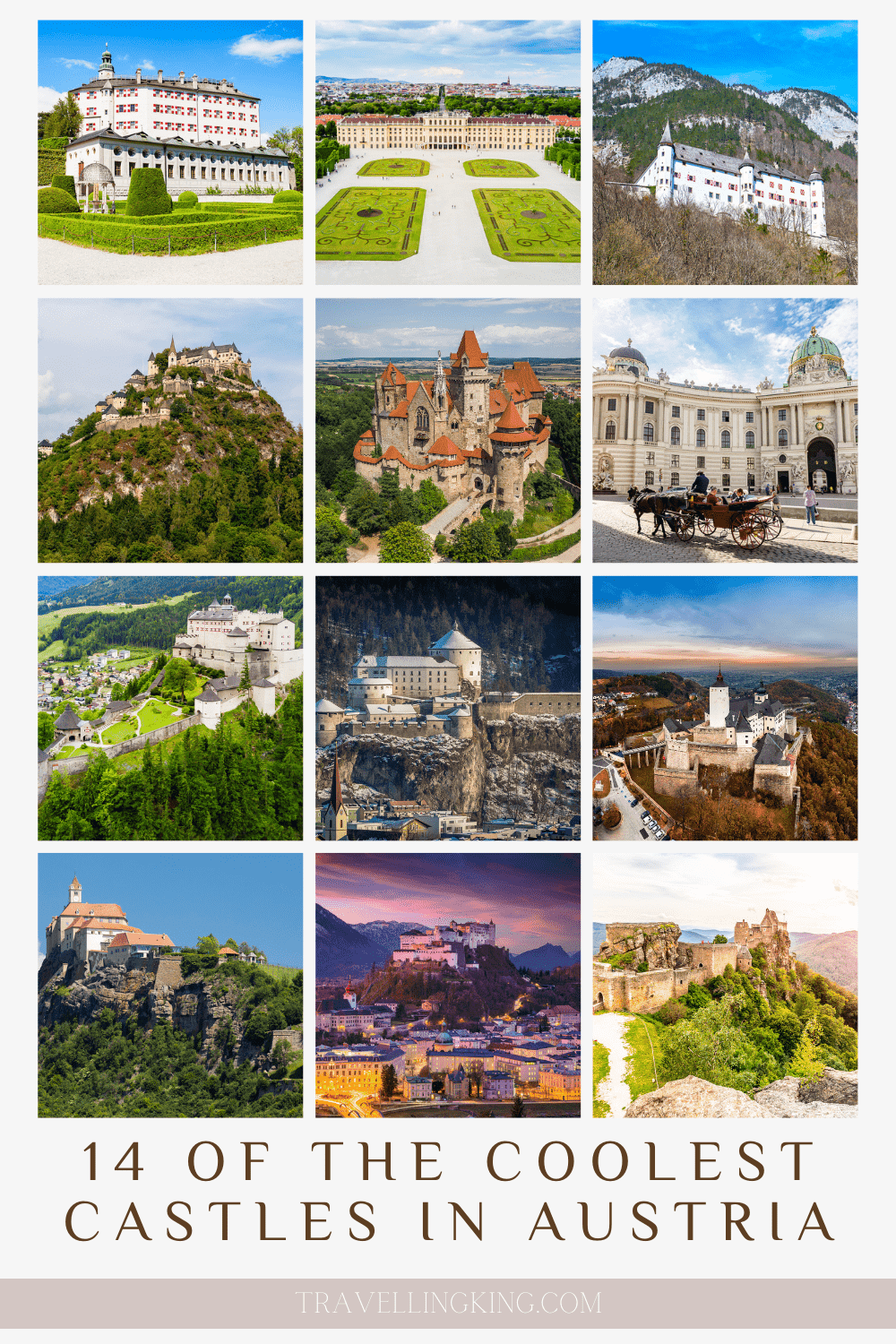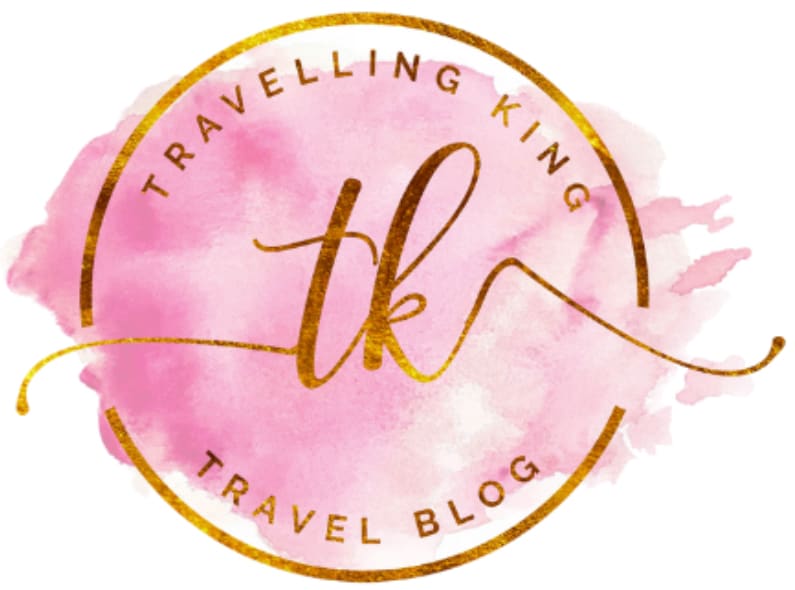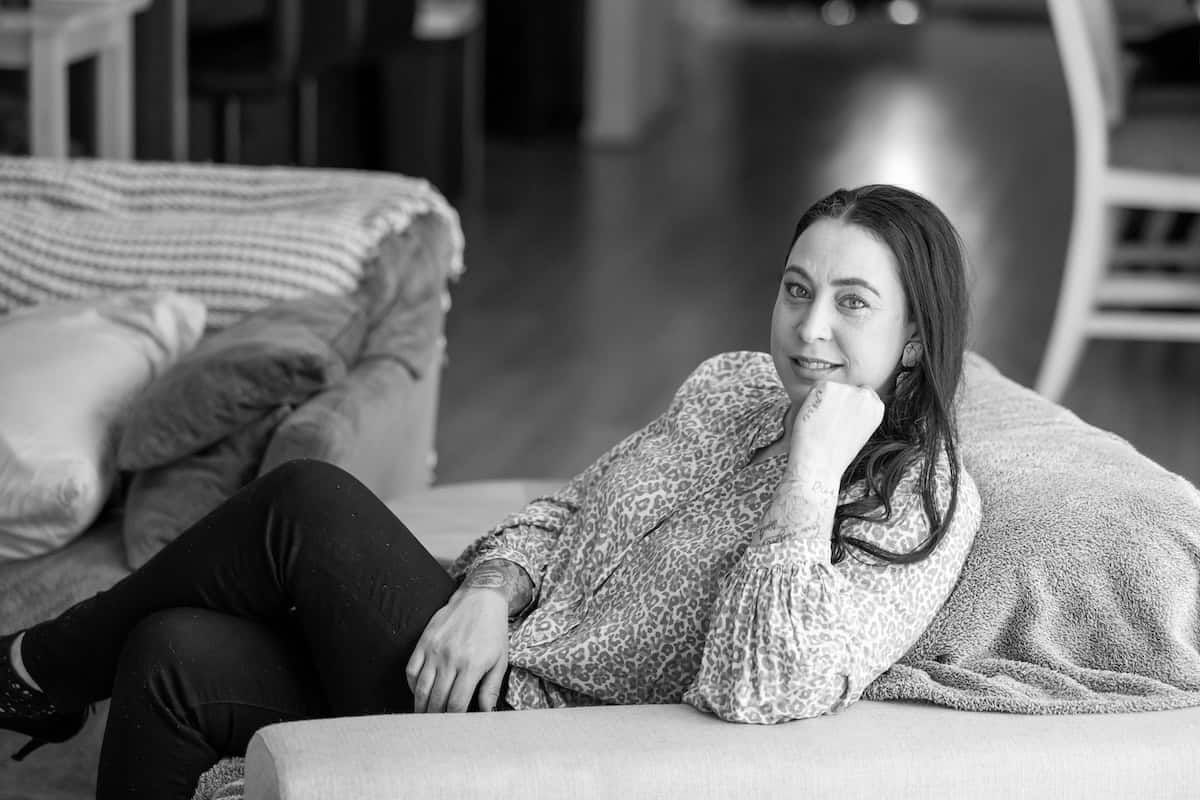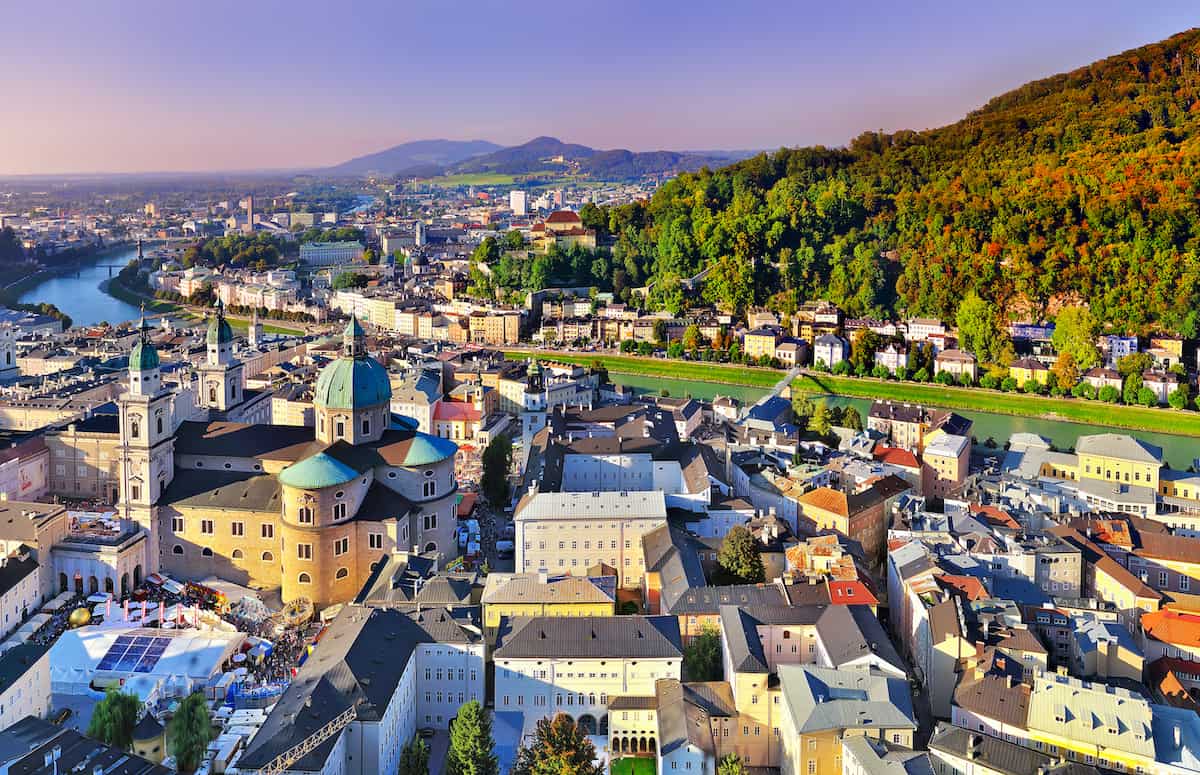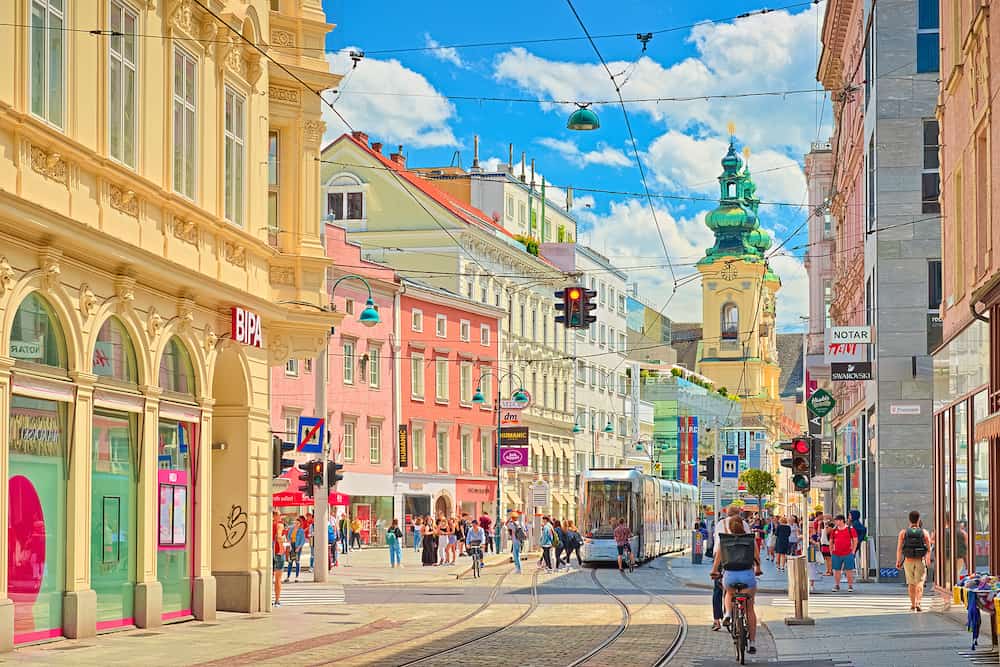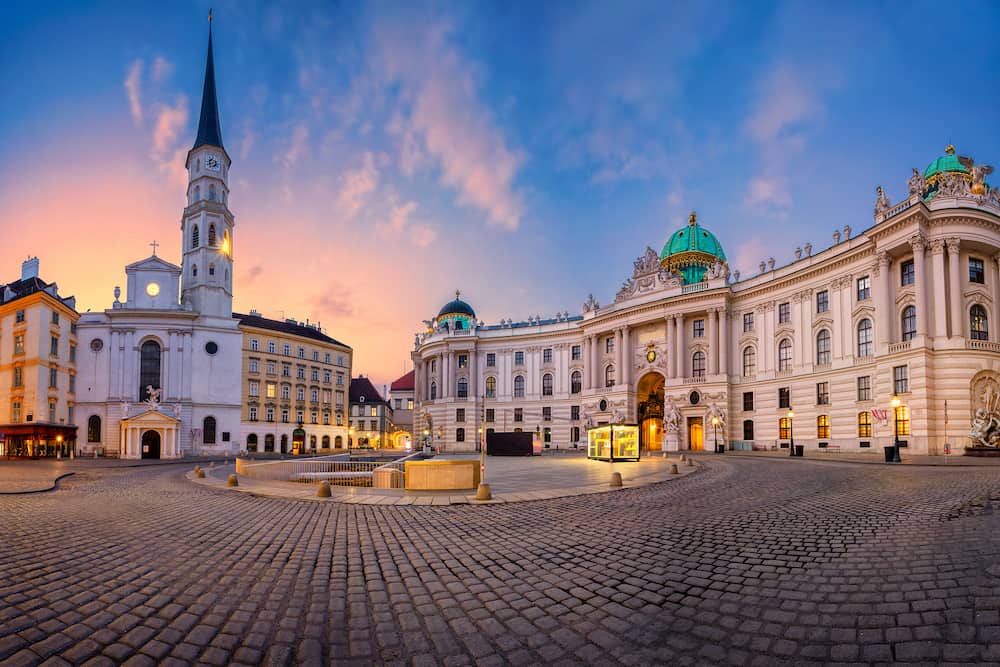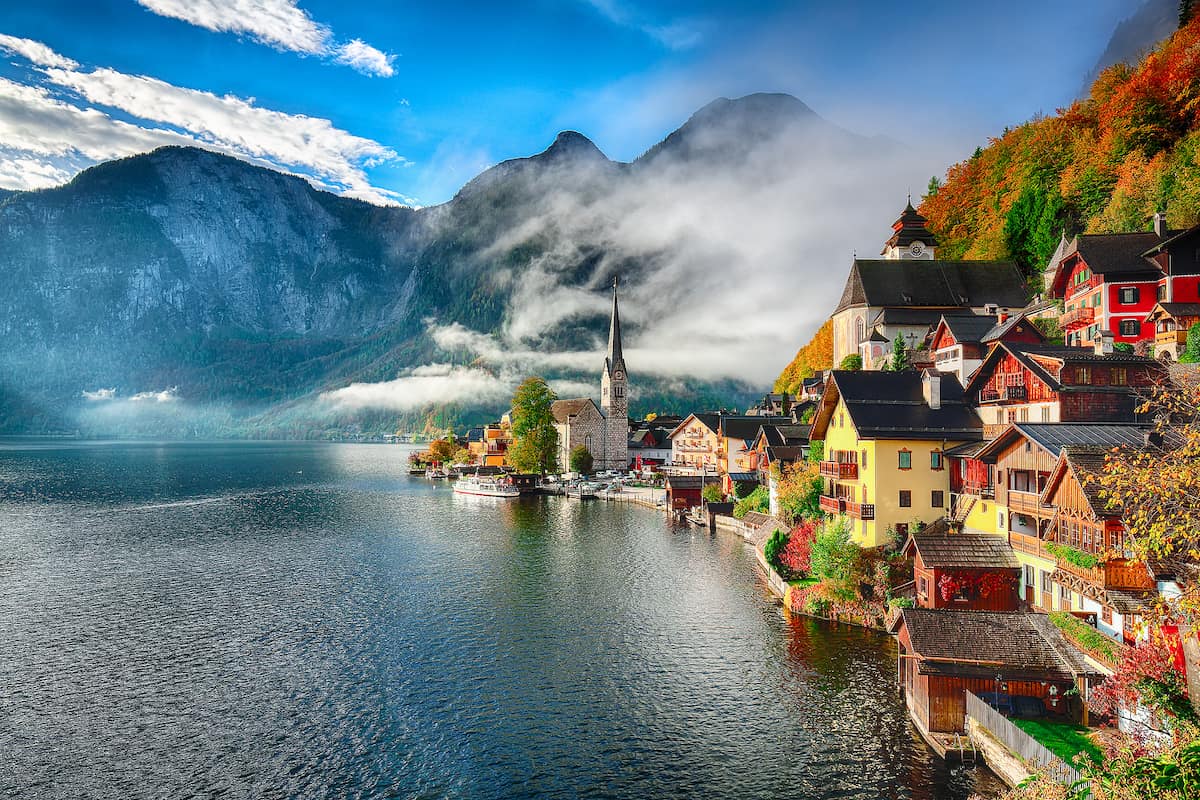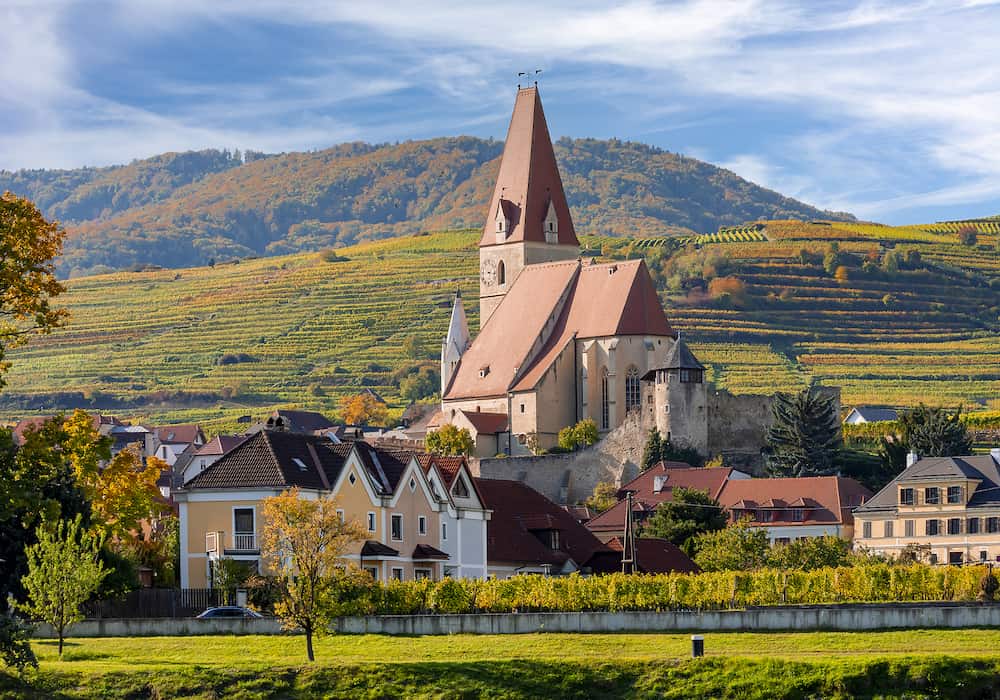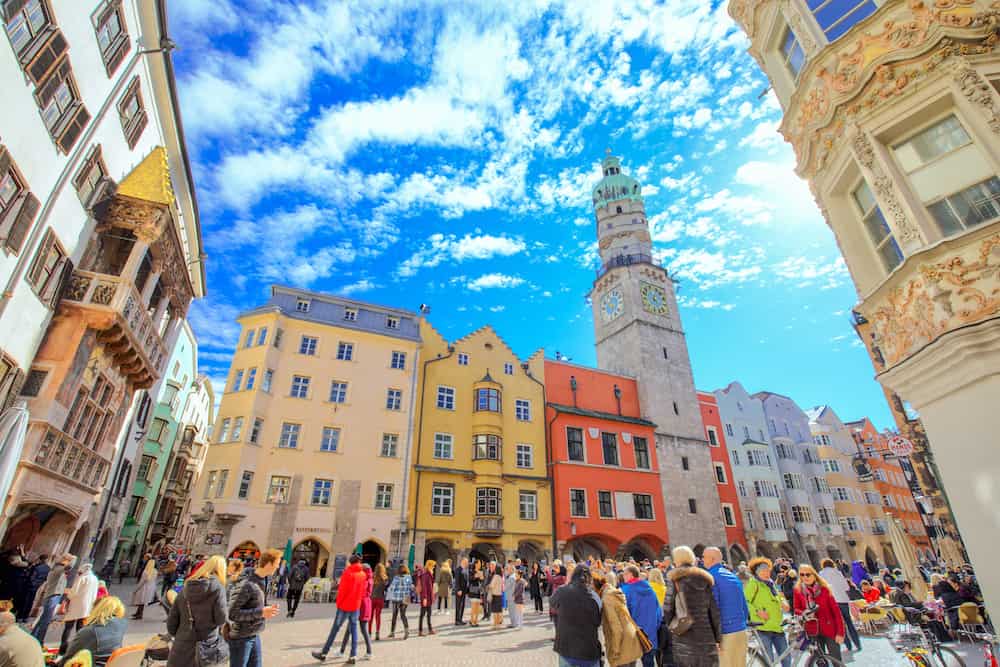14 of the Coolest Castles in Austria
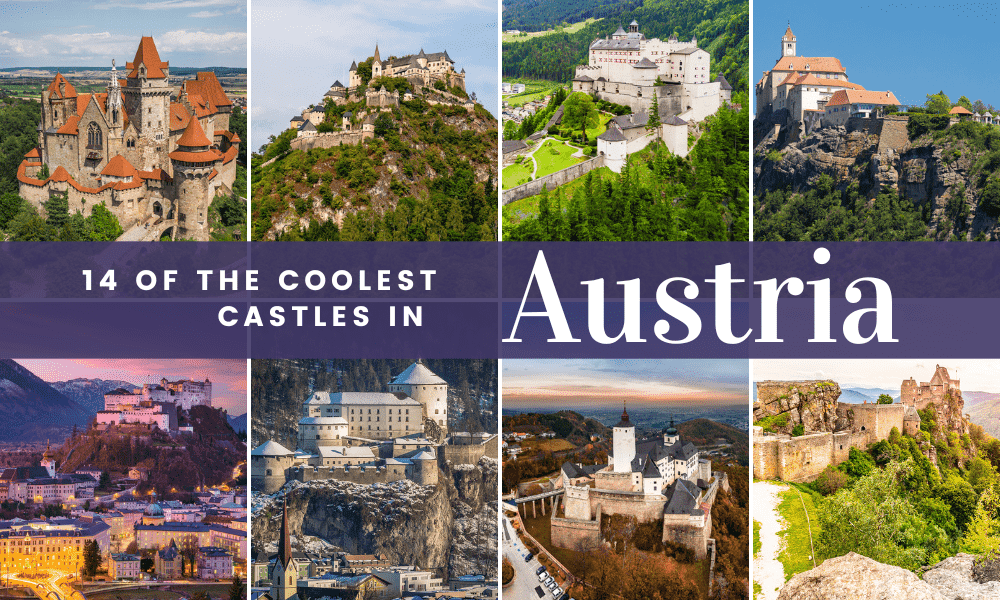
Austria is a landlocked German-speaking country in Central Europe with a long and rich history.
Home to many influential rulers and aristocrats over the centuries, castles and palaces were built as a display of wealth and power. Austria’s mountainous landscape also provided many strategic locations for defensive structures to protect against invaders.
There are countless castles in Austria, so which of them should you check out? To help you make this decision, read on and learn about 14 of the coolest castles in Austria.
Plan your trip
Save on fees abroad with the Wise Card—use it at ATMs, restaurants, and for flights or hotels in over 150 countries. Manage 40+ currencies in real-time with the Wise app.
Need Help Planning?
- Cheap Flights: Find the best deals.
- Accommodation: From hostels to luxury stays.
- Car Rental: Affordable options worldwide.
- Sightseeing Tours: Explore without breaking the bank.
- Travel Adapter: One adapter for all your needs.
- Travel Insurance: Don’t risk it—stay covered.
This post includes affiliate links. Read my full disclosure and content policy.
The Hofburg
Covering an area of 240,000 square metres, the Hofburg is officially the largest palace in the world. Initially built in the 13th century as a defensive structure, it has undergone numerous renovations and restorations to become one of the most iconic and beautiful castles in the country.
This complex is ideal for lovers of architecture, as you can see numerous styles on display that expanded upon the Gothic walls and towers. The 16th-century New Palace shows off classical Renaissance designs, while the 18th-century Imperial Palace and its ornate decoration is an example of the Baroque style.
Since the Hofburg was once the official residence of the Habsburg dynasty which ruled for 600 years, it provides a wonderful glimpse into Austria’s history. There are several museums now located here, including:
- The Imperial Treasury, displaying crown jewels, artifacts and other historic treasures
- The Sisi Museum, dedicated to Empress Elisabeth of Austria
- The Imperial Apartments, the former living quarters of Habsburg rulers that show the various decor styles from throughout the different centuries
- The Silver Collection, showcasing silverware, tableware, and other decorative pieces made from silver
There are many beautiful gardens and parks here too. The Imperial Butterfly House is a popular spot to visit, offering the chance to observe exotic butterflies and other insects in the Hofburg’s tropical greenhouse. The Burggarten and the People’s Garden are two excellent spots to chill out on a nice day and enjoy nature.
With its central location in Vienna, getting to the Hofburg won’t be a problem. It’s easily accessible via every public transport option, and likely walkable from your accommodation. If you purchase the Vienna Pass in advance, you can see the Hofburg and any of its museums without worrying about paying for individual tickets.
Accommodation near the Hofburg:
Recommended tours in the Hofburg:
- Vienna: Hofburg Palace, Sisi Museum & Silver Collection Private Tour
- Vienna Highlight Tour
- Daily Hofburg Palace & Sisi Museum Skip-the-line Guided Tour
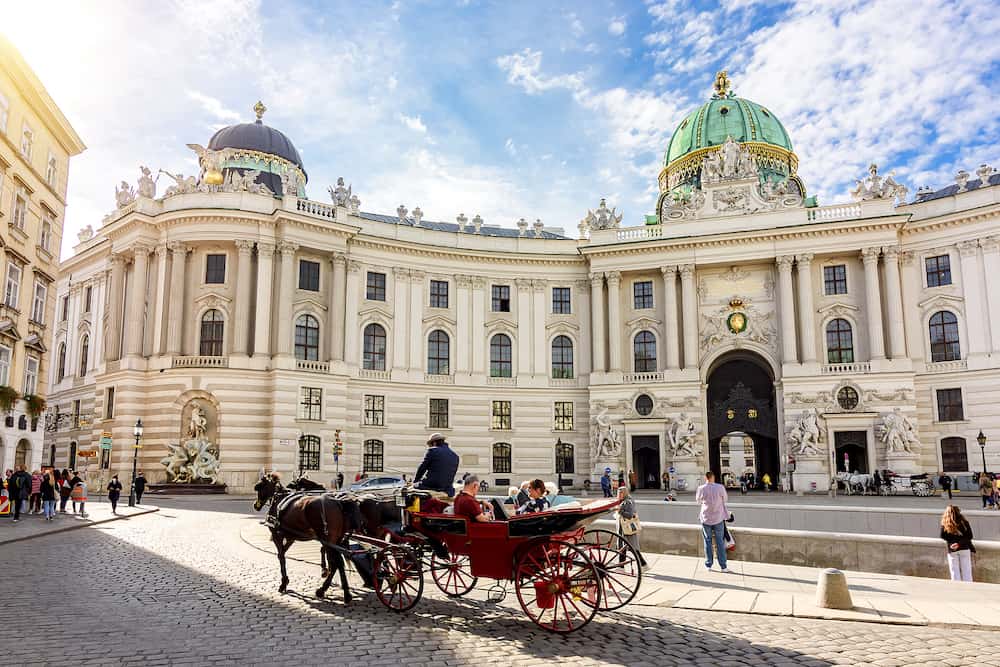
Kreuzenstein Castle
Burg Kreuzenstein, aka Kreuzenstein Castle, dates back to the 12th century and was built atop the remains of a former mediaeval castle. After featuring in popular films like ‘The Three Musketeers’ and ‘Season of the Witch’, Kreuzenstein Castle has become one of the most famous castles in Austria.
Originally a Romanesque-Gothic structure, the castle was destroyed during the Thirty Years’ War in the mid-1600s. Reconstruction was overseen in the 19th century by Count Johann Nepomuk Wilczek and architect Carl Gangolf Kayser and took about 30 years to complete.
Standing 265 metres above sea level and about 100 metres above the Danube river, the fairytale castle looks over the forests and towns of Lower Austria.
The castle is located 25 kilometres north of Vienna. You can take the S3 or S4 train from Vienna Central Station to Leobendorf-Burg Kreuzenstein, then grab a taxi or walk 30 minutes to reach the castle.
Visits inside are offered via guided tours only, which are available each day from the beginning of April until the end of October. These tours begin every hour and cost €15 per adult. Remember to bring cash, as there are no ATMs onsite and cards are not accepted.
Accommodation near Kreuzenstein Castle:
Recommended tours in Kreuzenstein Castle:
- Private Scenic Transfer from Vienna to Salzburg with 4h of Sightseeing
- Vienna 30 Minutes Helicopter Tour for 4
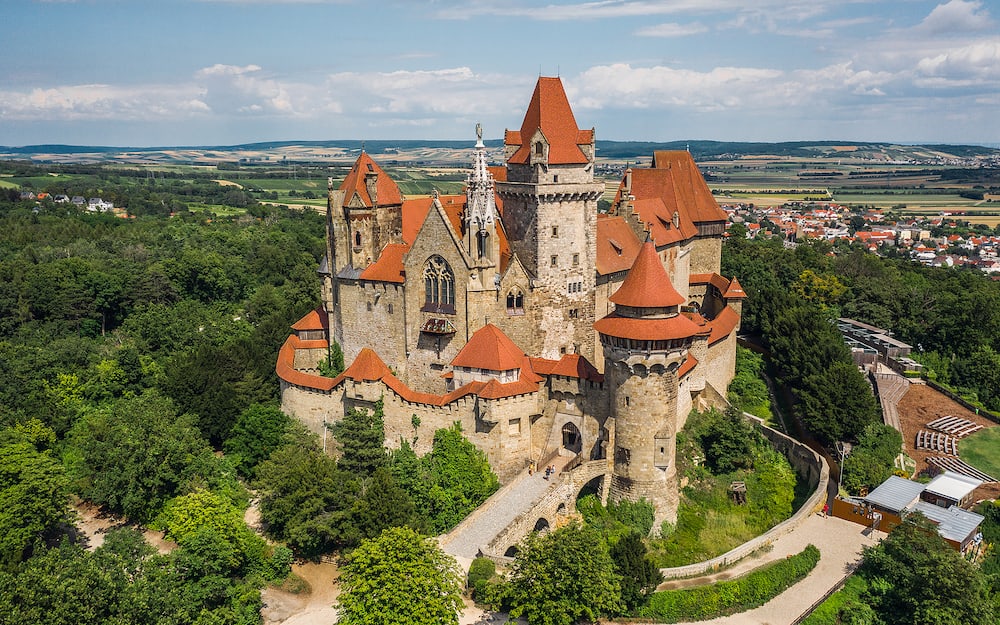
Schönbrunn Palace
One of the most remarkable castles in Vienna, Austria is Schönbrunn Palace. This enormous Rococo-style complex contains 1,441 rooms. Schönbrunn was once owned by the Habsburgs, one of the most influential dynasties in history. Due to its cultural and historical significance, the palace is listed as a UNESCO World Heritage Site.
Attacks from Turkish forces during the Battle of Vienna in 1683 destroyed Schönbrunn, and the palace had to be completely rebuilt during the late 1600s and 1700s. Francis II later ordered the exterior Neoclassical redesign you see today.
There are multiple guided tours available, depending on what you hope to see and learn. The Imperial Tour will show you the state rooms and private apartments of the imperial monarchy, while the Grand Tour also includes a look at the stunning 18th-century interiors during the reign of Maria Theresa.
Some of the must-see rooms include the Grand Gallery, the Hall of Ceremonies, the Vieux Laque Room, the Gobelin Salon, and the bedroom of Emperor Franz Joseph and Empress Elisabeth. You can also purchase additional tickets to see the Maze and Labyrinth in the spacious Baroque gardens, as well as the Orangery and Privy Gardens.
Although the exact opening hours change seasonally, you can visit the palace any day of the year. There are tram, bus and subway stops right outside Schönbrunn Palace, making it easy to get to at any time of day. You can take the 10 or 60 tram, the 10 A bus, or the U4 metro line and get off at Schloss Schönbrunn.
Accommodation near Schönbrunn Palace:
Recommended tours in Schönbrunn Palace:
- Schönbrunn Palace Concert in Vienna
- Skip the Line: Schonbrunn Palace & Gardens Guided Tour in Vienna
- Evening in Schönbrunn Palace: After-Hours Palace Tour and Classical Concert
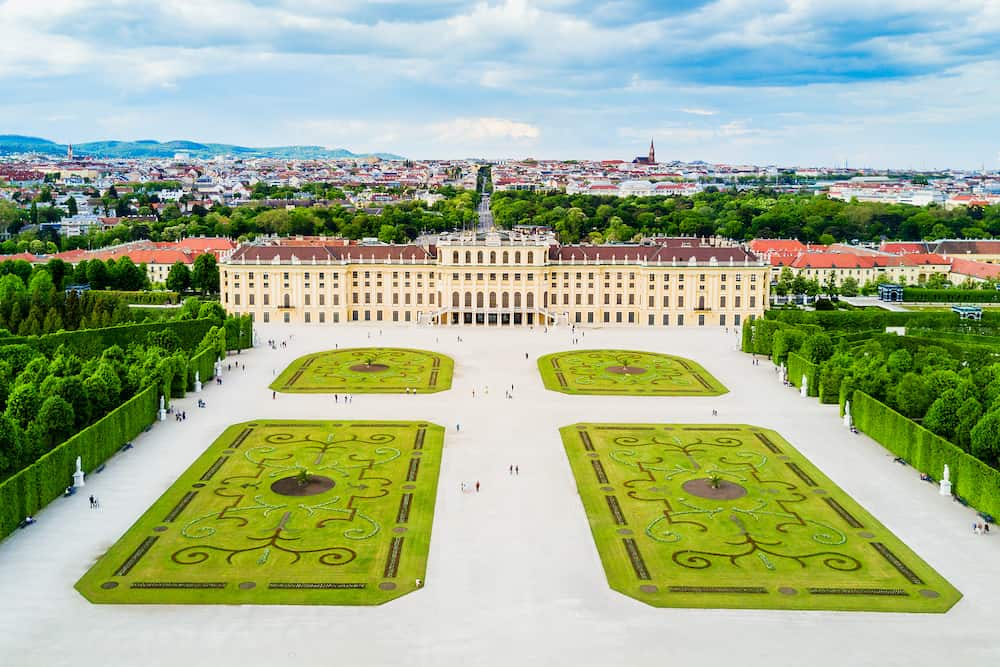
Hochosterwitz Castle
One of Austria’s most impressive sites is Hochosterwitz Castle. In fact, it’s regarded by many as one of the most beautiful castles in Austria. This imposing beauty was built on a large 172-metre-high dolomite rock that dates back to the Bronze Age. On clear days, the castle can even be seen from up to 30 kilometres away.
The castle is best known for its 14 fortified gates, which made it impossible for invading enemies to conquer. Other notable features include the 15th-century square tower, a 15-metre-deep draw well, and a quaint 17th-century chapel adorned with beautiful frescoes.
Inside the museum is an armory containing helmets, spears, and a bombard, the world’s oldest known firearm. You’ll also find a restaurant here now, where you can taste local Carinthian dishes in a perfect medieval setting.
Hochosterwitz was once a refuge during invasions in the 11th and 12th centuries and was later given to Christoph Khevenhüller von Aichelberg in 1581, who took charge of rebuilding. The castle you see today was primarily designed by prominent medieval architect Domenico dell’Aglio.
Found in the southernmost state of Carinthia among the Eastern Alps, the closest train station to Hochosterwitz Castle is Launsdorf. Take the inclined railway to get to the top, which reaches a height of 105 metres in just 95 seconds.
The castle is closed to visitors from November until mid-March the next year, although there are often special events held like the Advent/Christmas market in December. The price of admission is currently set at €17 per adult.
Accommodation near Hochosterwitz Castle:
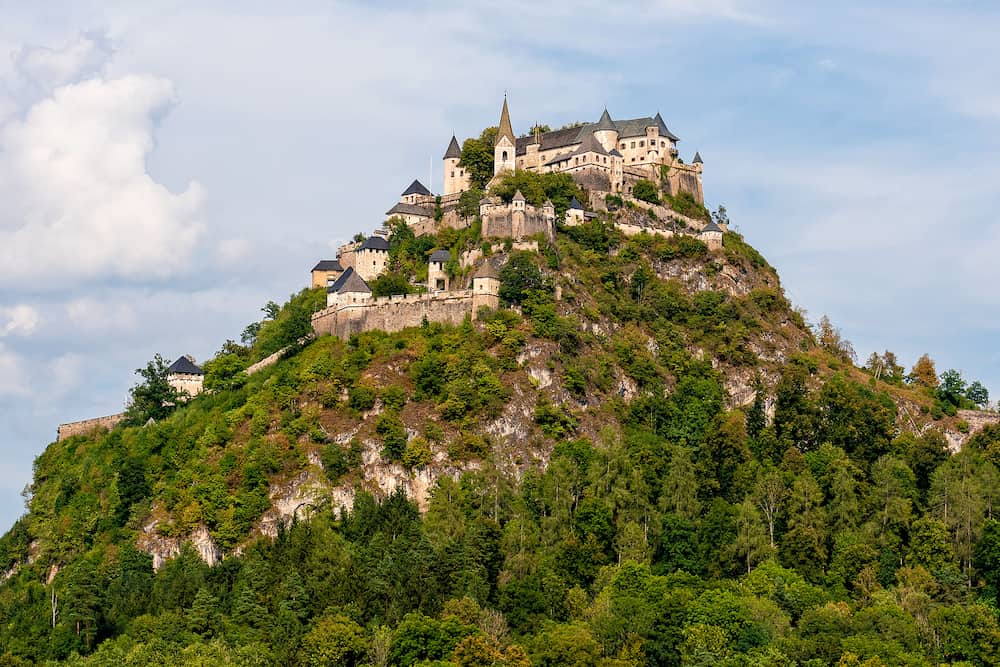
Ambras Castle
Ambras Castle is one of the most popular attractions in the region of Tyrol. The gorgeous Late-Renaissance castle in the city of Innsbruck was built in 1563. The grounds were originally divided into the four-storey residential Upper Castle and the Lower Castle, as well as the perfectly landscaped gardens with fishponds and aviaries.
Renowned art collector Archduke Ferdinand II had a museum facility created in the Lower Castle, making Ambras the oldest museum in the world.
There are numerous exhibitions here, including the Chamber of Art and Wonders, the Collection of Gothic Sculptures, the Ambras Hall of Antiquities, the Baroque Armoury, and the Strasser Glass Collection.
The Upper Castle houses the Habsburg Portrait Gallery, containing around 250 portraits of historical figures. The museum also has a digital collection spanning 450 years. If you need to take a break from browsing all of the collections, you can pop into the Ferdinand Café and Bistro.
Once you’re in Innsbruck, the castle can be accessed via multiple modes of public transport. If you’re arriving from the main railway station, you can catch Postbus 4134. Tickets to enter the castle can be purchased online for only €12 per adult.
Accommodation near Ambras Castle:
Recommended tours in Ambras Castle:
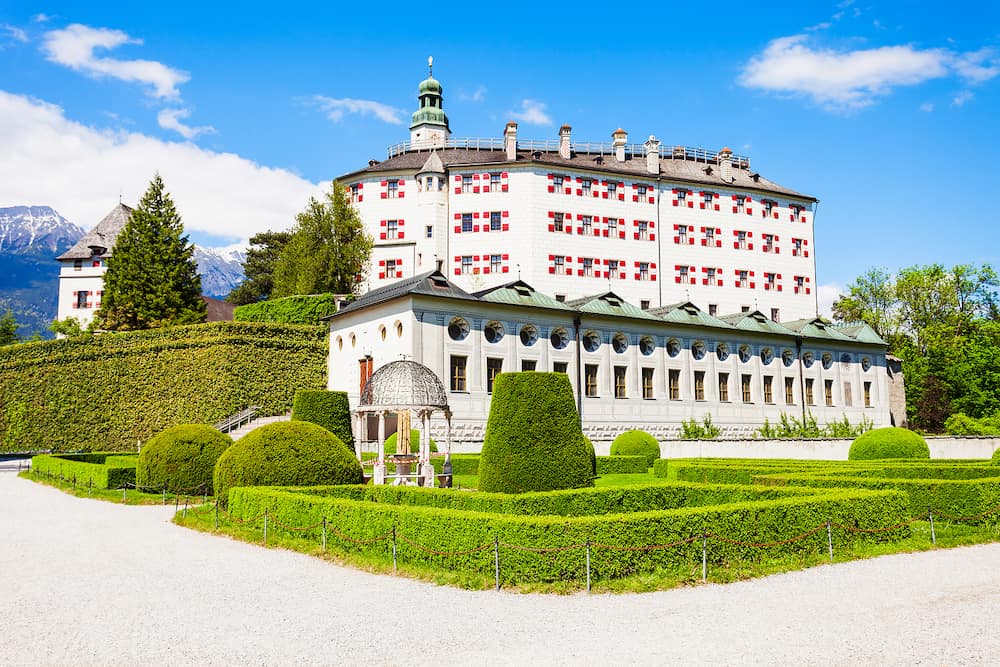
Liechtenstein Castle
Although Liechtenstein Castle was first built in the 12th century, it was destroyed in multiple wars over the years and was eventually rebuilt in the late 1800s thanks to architect Carl Gangolf Kayser. Like Kreuzenstein Castle, this site was also a filming location for ‘The Three Musketeers’, as well as several other films.
To look around the castle you’ll need to take a guided tour. They are available in both English and German for €12 per adult and run hourly. You’ll learn a bit about the 900 years of history of this Romanesque structure and see impressive furnishings that have been well preserved.
Liechtenstein Castle is located at the south edge of the Vienna Woods in Lower Austria. To get here, you only need to take a 15-minute train trip from Vienna Central to Mödling Station, then catch the 262 bus to the entrance of the castle.
Accommodation near Liechtenstein Castle:
Recommended tours in Liechtenstein Castle:
- Heidiland and Liechtenstein Tour from Zurich: Two Countries in One Day
- 4-country Private Tour from Zurich: Austria, Liechtenstein, Germany, Switzerland
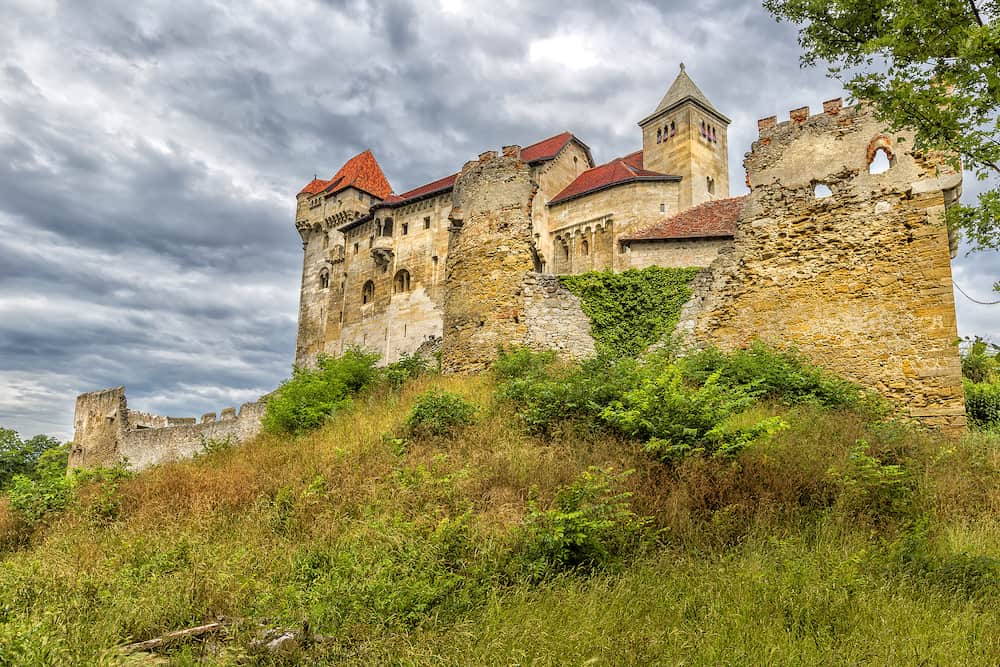
Aggstein Castle
One of the most scenic castles in Austria is Aggstein Castle. The ruins sit 300 metres above the Danube River below, offering an unforgettable view. Constructed from rock in the 12th century, it has been rebuilt several times and is now around 150 metres long.
One legend states that prisoners were held captive here on a platform called the Rose Garden and forced to jump to their deaths below or starve. On a guided tour you’ll discover the hidden stairways, dungeons, courtyards, towers and special viewing platforms. There are even tours suitable for children that detail the exciting historical events that once took place here, plus other age-appropriate fairy tales.
Although this castle hasn’t been as well preserved as others, its ruins are still a popular setting. Medieval festivals and other events are regularly held here, including an annual Christmas market.
Aggstein is 100 kilometres northeast of Vienna. The closest railway station is Aggstein Aggsteinerhof, though you’ll need to switch trains and buses a few times to get there. The best option is to drive, which will usually take about an hour and 25 minutes.
Accommodation near Aggstein Castle:
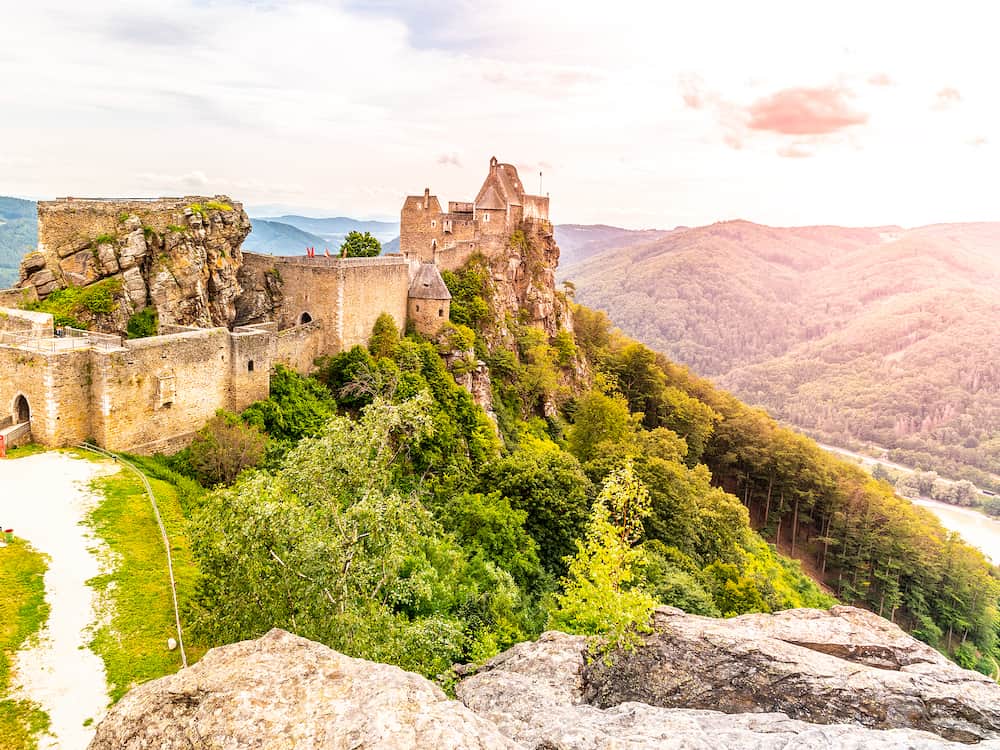
Forchtenstein Castle
Forchtenstein Castle is the only castle in the region that was never seized by Turkish forces. It was built by the Lords of Mattersdorf in the early 15th century and was later owned by the Habsburgs before being passed onto the House of Esterházy, a noble Hungarian family.
In the second half of the 17th century, the castle became a storage space for weapons, chronometers, preserved flora and fauna, archives, and various other treasures. Since access to this repository was only possible through a secret passage door requiring two keys, it remained undiscovered until after World War II. The Baroque collection can now be seen in the Treasure Chamber.
This Late Middle Ages structure features a 50-metre-high keep and a tower with a 12-metre-deep pit that was formerly used as a prison cell. The inner courtyard is adorned with frescoes, and the Café Restaurant Grenadier located inside the castle offers a romantic lunchtime setting with a view.
English tours are conducted daily at 1 pm. There are also magical winter tours held here in the snow and the ice. Although these are only conducted in German, you can join along with a Visitors Guide booklet available in multiple other languages.
Located in northern Burgenland, Forchtenstein is about an hour’s drive from Vienna. There’s also a bus that departs from Vienna Südtiroler Platz.
Accommodation near Forchtenstein Castle:
Recommended tours in Forchtenstein Castle:
- Forchtenstein Castle Guided Tour
- Go City: Vienna Explorer Pass – Choose 2, 3, 4, 5, 6 or 7 Attractions
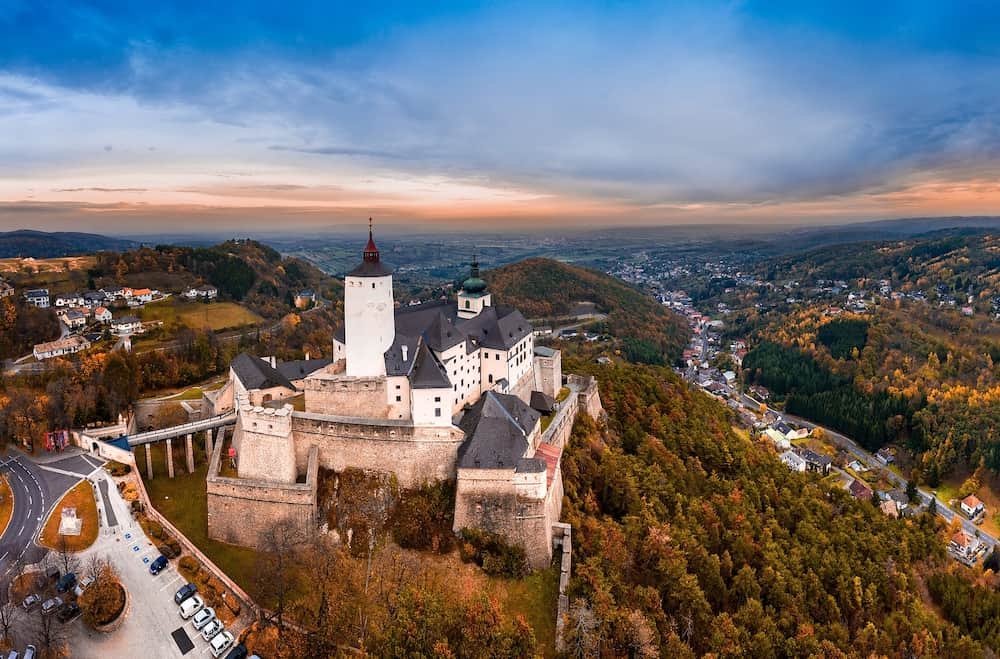
Tratzberg Castle
The gorgeous Tratzberg Castle in Tyrol, Austria combines both late Gothic and early Renaissance features. It was built in the 1500s and was once home to kings, queens and emperors.
The castle is incredibly well preserved, with many of its original furnishings and fittings still intact. Some of the notable historic pieces include a late Gothic South Tyrolean cupboard; carved life-sized bear, fox and red deer sculptures in the dining room; a green-glazed masonry heater; an original painting by Hans Leonhard Schäufelein; and frescoes of the Habsburg family in the imperial hall. There’s also a hands-on exhibit with swords and helmets you can try on.
Regular guided tours are available daily from April to September, and on weekends only during October and November. If you’re travelling with kids, there are special fairytale tours to keep little ones entertained. The opening hours also change according to the time of the year.
The closest major city to Tratzberg is Innsbruck. From there, take the train to Schwaz Bahnhof, then a bus to Stans Tratzberg. If you prefer to drive, it’ll take you only half an hour. While you are free to walk up the hill to the castle yourself, you might like to take advantage of the Tratzberg Express shuttle service.
Accommodation near Tratzberg Castle:
Recommended tours in Tratzberg Castle:
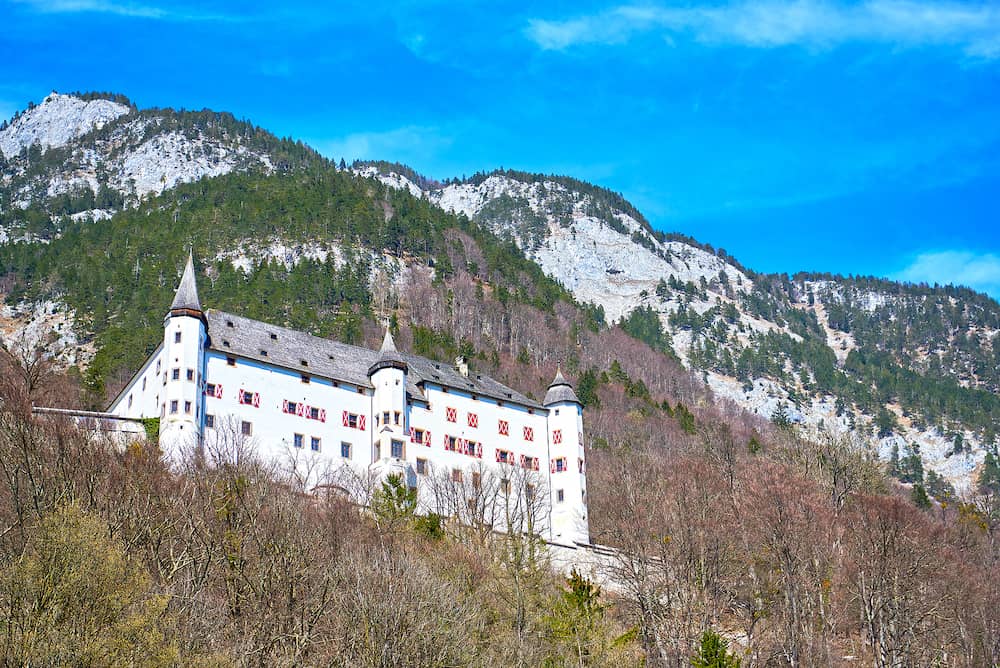
Hohensalzburg Fortress
Built in the 11th century, the mediaeval Hohensalzburg Fortress is the oldest castle in Austria. At 250 metres long and 150 metres wide, it’s also one of the largest castles in Europe. Designed by Archbishop Gebhard von Helfenstein, the structure sits high above Salzburg’s Old Town.
As you may expect from its grand size, there are countless things to see and do here. Admire the furnishings and decor of the Golden Chamber, see the canons and other weaponry in the armoury, learn about the history of Salzburg at the Fortress Museum, and explore the world of puppetry at the Puppet Museum.
Of course, one of the best reasons to visit Hohensalzburg is for the magnificent views. The Panorama Tour, as the name suggests, gives you 360-degree access to gaze out across the surrounding city and mountains.
The fortress is only a 20-minute walk from Salzburg Railway Station, but there are also numerous buses to take you there and back. Since you can’t reach the fortress by car, the best option is to take the funicular from the Old Town, which runs every 10 minutes.
Alternatively, the walk from the centre of Salzburg’s Old Town takes about another 20 minutes. Open 365 days a year, tickets to visit the fortress can be booked online at a range of price points, depending on the different areas you want to see.
Accommodation near Hohensalzburg Fortress:
Recommended tours in Hohensalzburg Fortress:
- Best of Mozart Concert at Fortress Hohensalzburg in Salzburg
- Salzburg Highlights Guided Tour and 24-Hour Salzburg Card
- Salzburg Highlight Tour with Fortress Hohensalzburg
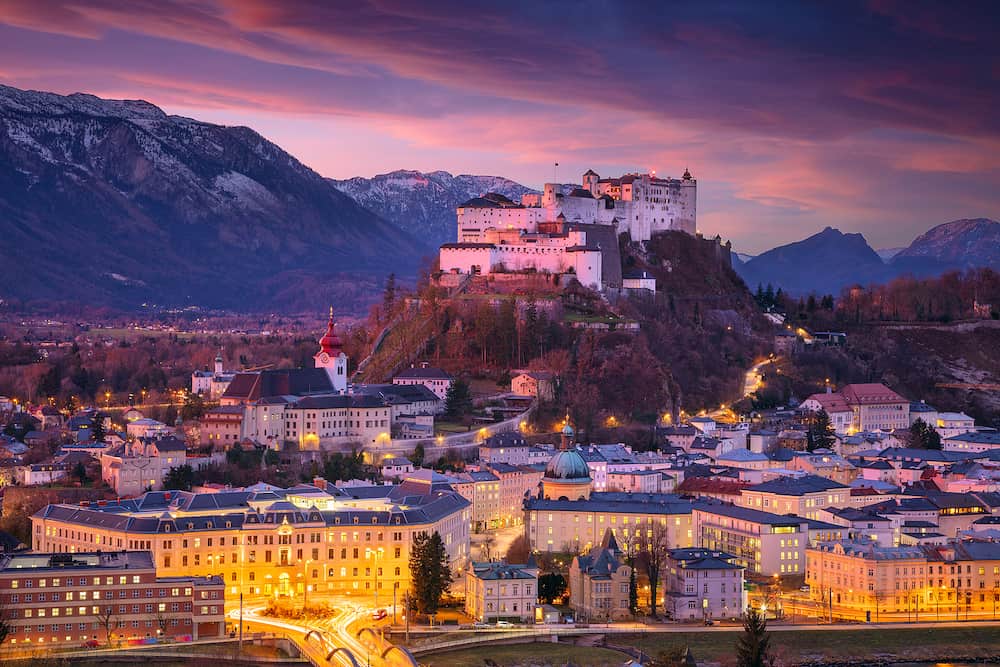
Kufstein Fortress
Kufstein Fortress is the small yet charming focal point of the town of Kufstein in Tyrol, Austria. The first documented mention was in 1205, when it was owned by Bavarian Duke Ludwig. The fortress has an open-area arena with a rock passage, a herb garden and a deep well.
Permanent exhibitions detail the life of Emperor Maximilian I and the history of the region. Once used as a state prison, you can walk through the castle’s former cell blocks and learn about its VIP prisoners and the mediaeval punishments they may have been subjected to.
Afterwards, join the Castle Lord’s Feast in the former chapel for an unforgettable meal and a show, and grab a souvenir or two at the gift shop.
The castle is home to the Heroes’ Organ, the largest free-standing organ in the world. Built in 1931, this organ has 65 stops and 4,948 pipes. It is played daily at noon and is heard throughout the town.
To get to Kufstein, you can catch the train from nearby Innsbruck or Salzburg. If you’re coming directly from Vienna, the train will take a bit under four hours. The fortress itself is accessed via the Festungsbahn funicular.
Although it is open every day of the year, even during winter, admission times may vary. Hour-long guided tours are available daily for only 3.30 extra per person.
Accommodation near Kufstein Fortress:
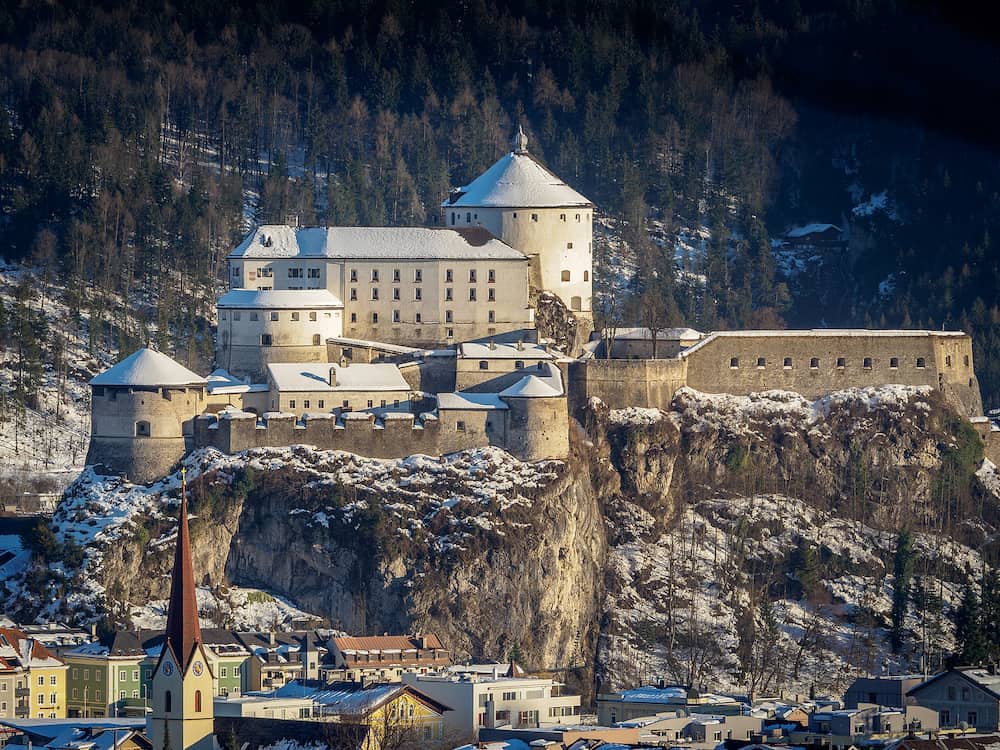
Riegersburg Castle
Riegersburg Castle is one of the most unique Austrian castles, as it was built atop a dormant volcano 482 metres high. The first written mention of the castle was in 1138, though the rocky landscape has been inhabited for more than 6000 years.
Since the early 1800s, this Baroque castle has been owned by the Princely Family of Liechtenstein, who oversaw renovations and turned it into a museum.
25 of the 108 rooms are open for viewing, with alternating exhibitions on witch trials and sorcerers, the weapons of noble knights, and the overall history of the castle. Riegersburg is also home to an aviary and offers professional falconry shows, and even has its own climbing and adventure park.
The castle is open between April and October. It’s located 60 kilometres east of the city of Graz, so you can either drive or take the S3 train to Feldbach, then a bus from there to Riegersburg Süd
Accommodation near Riegersburg Castle:
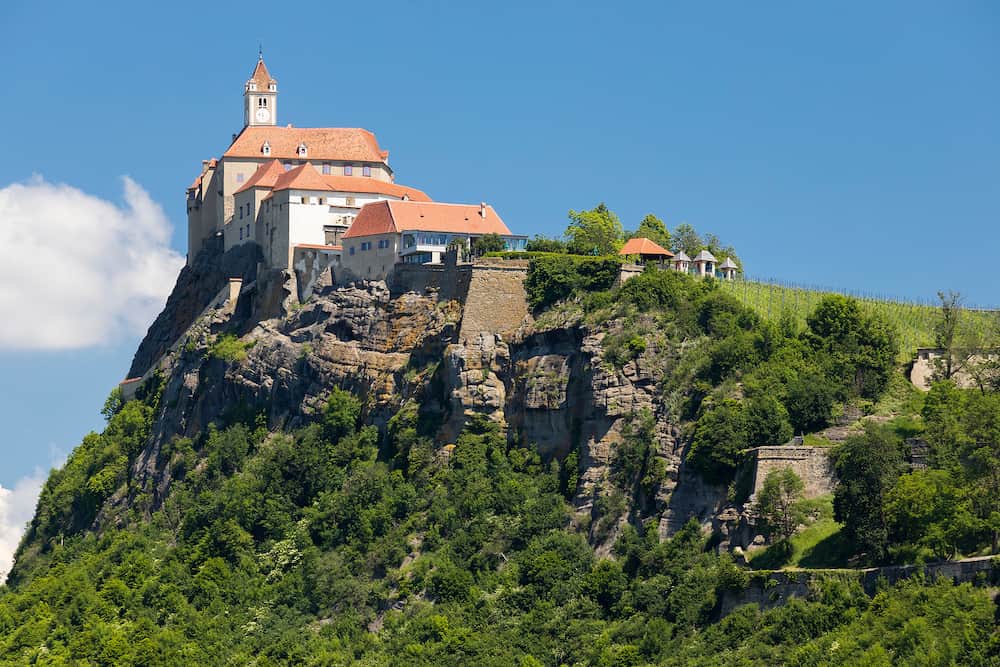
Hohenwerfen Castle
The mediaeval Hohenwerfen Castle was built on top of a 155-metre-high rock in the 11th century. Originally a protective and defensive structure, it has been used as a military barracks and a prison over the years. The fortress gained international popularity after being featured in the 1968 war film ‘Where Eagles Dare’, and can also be seen in the background of ‘The Sound of Music’.
Hohenwerfen is now a museum, where visitors can take guided tours through the chapel, the armoury, and former living quarters.
The onsite falconry offers daily flight demonstrations with vultures, hawks, eagles and falcons. The castle also treats visitors to a panoramic view of the surrounding Berchtesgaden Alps and Tennen Mountains.
Most visitors arrive from Salzburg, which is only a 40-minute drive away. There are also regularly departing trains that can take you to the town of Werfen.
Accommodation near Hohenwerfen Castle:
- Werfenerhof
- Berghotel Garni Burgblick – Adults Only
- Weisses Rössl Werfen
Recommended tours in Hohenwerfen Castle:
- Eagle’s Nest and ‘The Where Eagles Dare Castle’ of Werfen
- The Grand Castle Tour – Full Day Private Tour from Salzburg
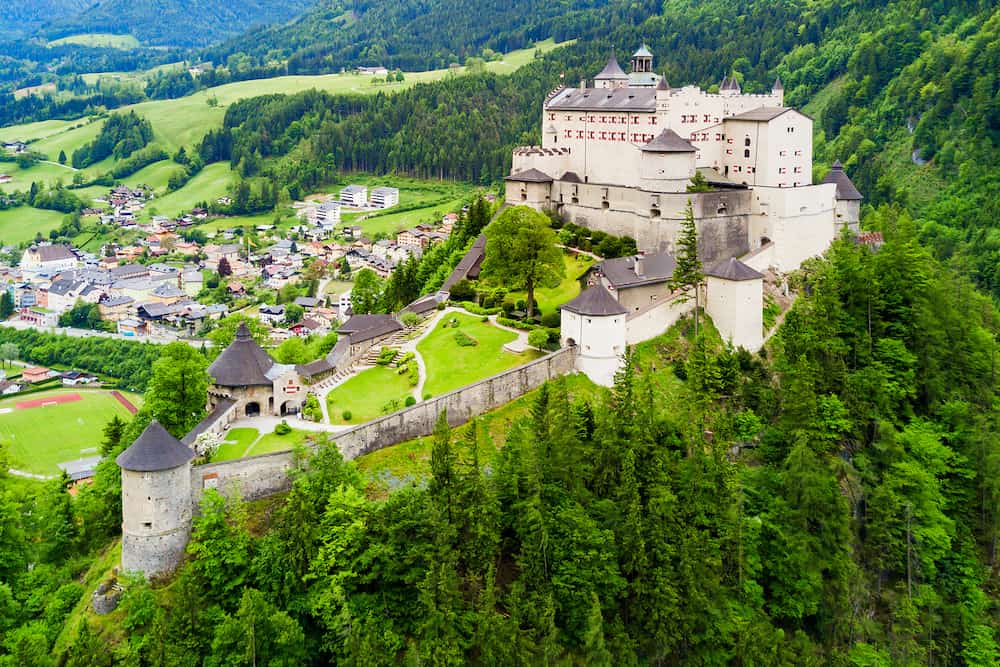
Artstetten Castle
The stunning Artstetten Castle is an impressive gem that features seven pointed towers. Built in 13th-century Gothic style, expansions and renovations over the years have seen Renaissance, Baroque and Neoclassical elements added.
As the castle is now owned by the Habsburg-Lorraine family, it’s a great place to learn about the history of this long-standing dynasty. It is also the burial place of Archduke Franz Ferdinand and his wife Sophie, whose assassinations contributed to the outbreak of World War I.
Surrounded by beautiful gardens and meadows full of oak and chestnut trees, this relaxing natural setting is the perfect place to visit on a sunny day. If you’re lucky, you may even spot some wild deer and rabbits around.
The castle is found in the Wachau Valley of Lower Austria, overlooking the Danube River. Located 100 kilometres west of Vienna, driving is the preferred method to get there. However, there are still train and bus options if you aren’t in a hurry. Tickets to the castle’s museum and crypt are less than €13 per adult, with additional audio guides available for an extra €3.50.
Accommodation near Artstetten Castle:
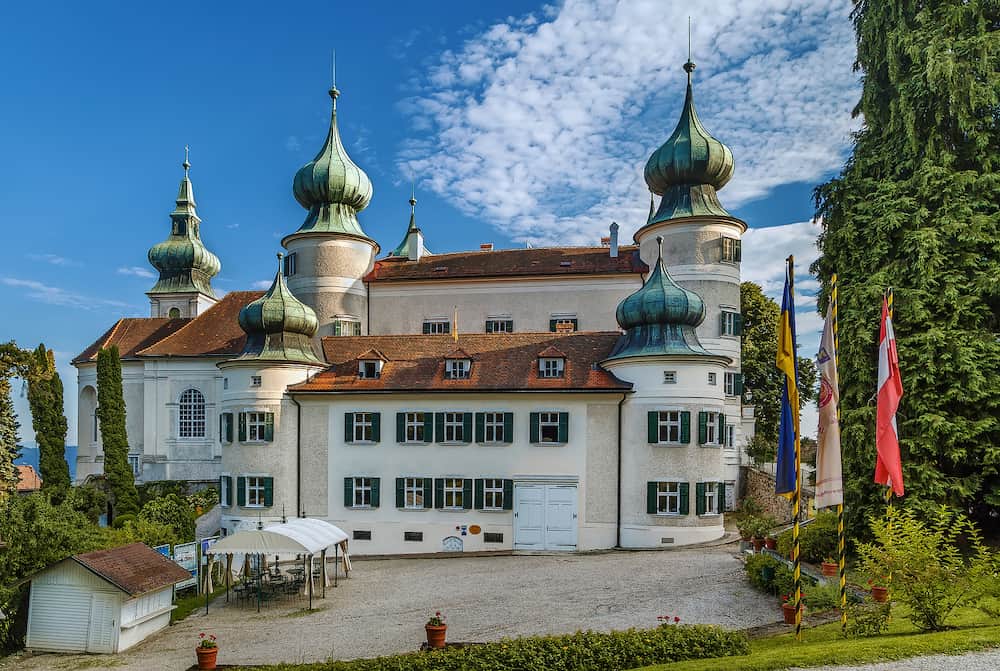
If you’d like to save it for later, please save it to Pinterest.
